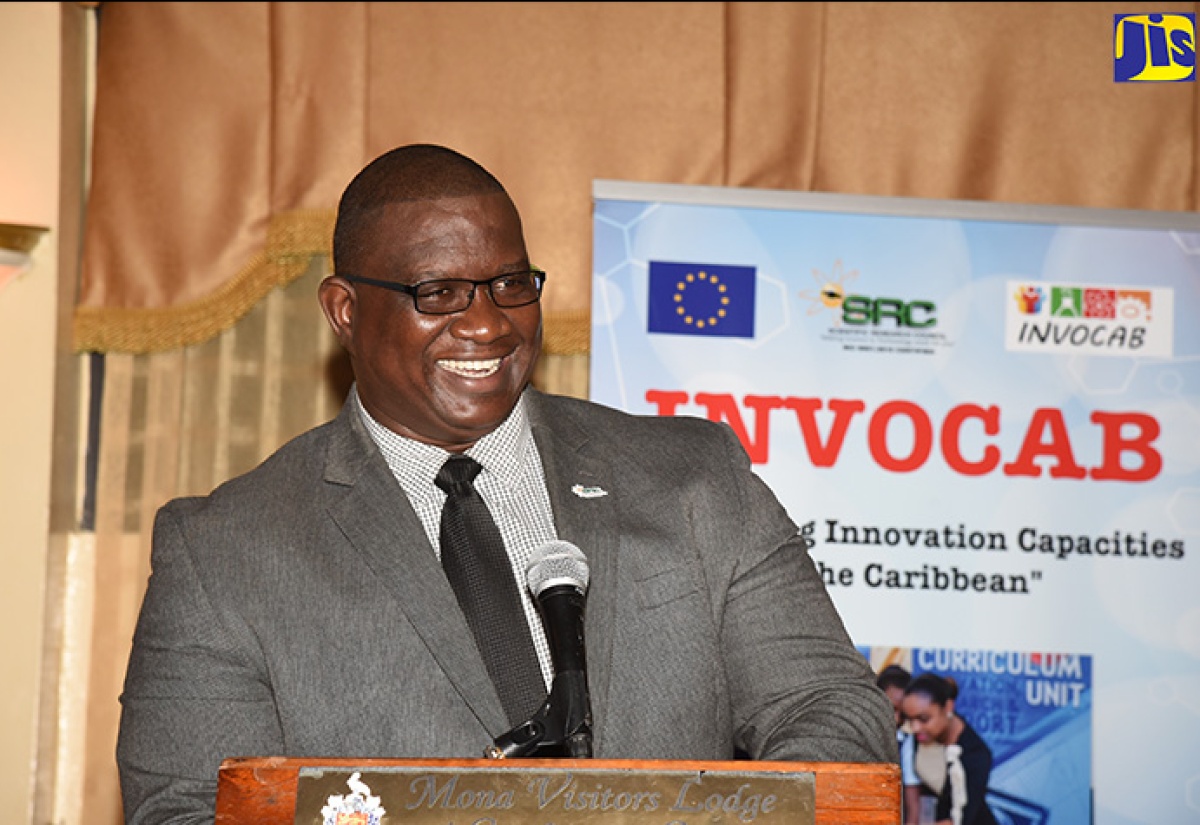SRC Staging Science Education Symposium
By: , October 18, 2017The Key Point:
The Facts
- INVOCAB aims to strengthen the capacity of primary and secondary schools that get low grades in the sciences.
- The symposium will examine various topics, including ‘Preparing Students for External Examinations and Beyond’, ‘Driving Innovation in Science and Technology Education’ and ‘Science and Technology Education for the Labour Market’, among others.
The Full Story
The Scientific Research Council (SRC) is staging a two-day symposium aimed at improving the delivery of science education at the primary and secondary levels.
Approximately 200 mathematics and science teachers are expected to participate in the event, which opened on Tuesday (October 17) at the Mona Visitors’ Lodge of the University of the West Indies (UWI).
It will promote interventions under the European Union (EU)-funded Improving Innovation Capacities in the Caribbean (INVOCAB) Project and highlight its impact on the local education system.
INVOCAB aims to strengthen the capacity of primary and secondary schools that get low grades in the sciences.
The project has, among other things, commissioned science laboratories into operation at a number of institutions, through $113 million in funding from the EU.
These laboratories are equipped with test tubes, burettes and other scientific tools and equipment, with a view to bringing a practical approach to teaching and improving the performances of students in the subject areas.
Executive Director of the SRC, Dr. Cliff Riley, in his remarks at the opening ceremony said that the SRC has been working closely with teacher-training institutions in order to improve the teaching of the sciences, noting the need for the utilisation of more practical methods.
“We cannot teach science and maths just using theories, laws or principles. We have to take a practical approach to how we teach science. Students want to see science unfold right in front of their eyes. This is how we get their attention and drive their interest,” he argued.
“As teachers you can utilise your environment, the materials we interact with on a daily basis to stimulate levels of interest among youngsters,” Mr. Riley added.
He said the SRC, through INVOCAB, is committed to building capacity and strengthening the areas of science, technology and innovation in the Caribbean.
Political and Press Officer, Delegation of the EU in Jamaica, Justin Pearson, said his organisation is “delighted to participate in INVOCAB”.
“This project demonstrates our commitment to education, to building capacities in science and technology and for increased productivity. It also is important towards growth and poverty reduction,” he said.
Mr. Pearson, who represented Head of the EU Delegation, Malgorzata Wasilewska, added that his organisation’s support “represents in a tangible way how the EU is (assisting) Jamaica to realise its national development goals”.
He commended the SRC for the work it has been doing through INVOCAB and described it as a “valuable endeavour” that will bring about the desired improvements in students’ performance at all levels.
Director General of the National Commission of Science and Technology (NCST), Professor the Hon. Errol Morrison, who delivered the keynote address, said more technology must be used in the classroom rather than the “chalk and talk” method of education.
The symposium will examine various topics, including ‘Preparing Students for External Examinations and Beyond’, ‘Driving Innovation in Science and Technology Education’ and ‘Science and Technology Education for the Labour Market’, among others.
Manuals on ways to make science fun and easy, with guidelines and directives for schools, will be launched, promoted and disseminated at the symposium.


